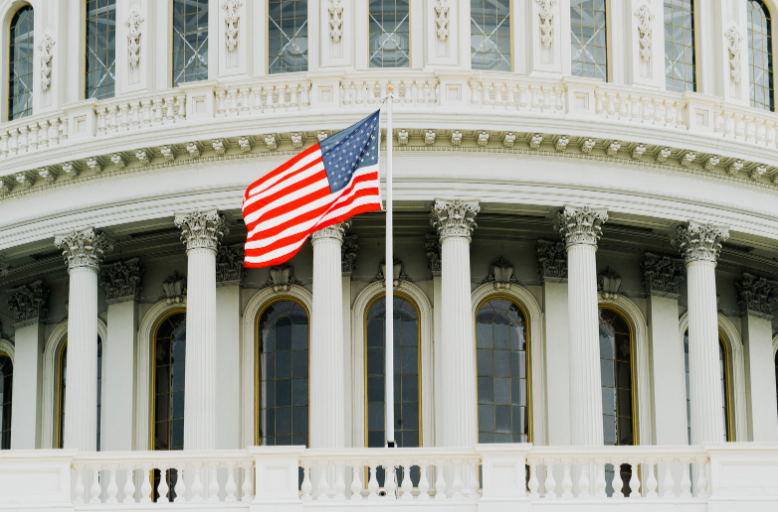The lobbying landscape is undergoing a major transformation—and it’s a transformation driven largely by the rise of digital platforms and social media. The year 2024 marks a huge moment in this evolution, as election year activities will put these relatively new tools and platforms to the test. In this post, we aim to dissect these significant shifts in order to shed light on the current state—and future—of lobbying in an increasingly digital world.
The Shift to Digital
It used to be that lobbying activities were confined to phone calls and face-to-face meetings. Those days are past, and it all has to do with the power of technology. The digital age has ushered in a new era where lobbying takes place largely online, with results even more constructive than traditional methods could ever produce.
Digital platforms such as Facebook/Meta and Twitter/X offer easy access to millions, which enables lobbyists to boost their messaging and “rally the troops” on a scale previously unattainable, while Zoom meetings enable policymakers to reach out to others from the comfort of their office.
As we continue through 2024, it is clear that digital advocacy has already become a cornerstone of effective lobbying strategies. The proliferation of analytics tools allows for targeted, data-driven campaigns that can shape public opinion and catch the attention of decision-makers.
Social media platforms, once seen as the domain of idle chatter, have blossomed into powerful lobbying tools that can inspire wide-ranging support at a grassroots level. Meanwhile, old-fashioned tools such as forwarded emails have become nearly obsolete—there are now much more reliable methods of passing the message along.
As we move forward, understanding the ins and outs of digital lobbying and making the most of its potential will be vital for lobbyists as well as policymakers.
The Rise of Online Advocacy
As we have seen, the digital era has boosted social advocacy to new heights. This expansion can be credited in large part to the increasingly sophisticated arsenal of digital tools available to advocates for social change. Key factors contributing to this rise include:
- Accessibility and Inclusivity – Digital platforms have made it possible to reach anyone with internet access (which is a lot of people). This inclusivity has contributed to a diversification of voices in the policy-making arena, especially beneficial for marginalized communities.
- Cost-Effectiveness – Digital platforms enable messaging through social media, email, and websites at a fraction of the cost of traditional methods like TV ads and in-person events. In many cases, know-how is more important than budget—lobbyists merely have to understand how to take full advantage of tools that are free or very inexpensive to use.
- Real-Time Mobilization – The speed at which digital campaigns can be launched allows lobbyists to react immediately to current events. It’s possible to reach literally millions of people in virtually no time with just the push of a button.
- Enhanced “Storytelling” – Digital media offers innovative ways to tell compelling stories that can captivate a broad audience, or target a relatively small group of influential persons. For example, a three-minute YouTube video can make a complex issue more understandable and engaging, while demanding only a minimal time investment from the intended audience.
- Relevant Feedback – Analytics tools provide immediate feedback on campaign performance, so it’s possible to tweak lobbying tactics without delay. For instance, it’s possible to determine which online video or ad is receiving the most views in a particular campaign, or which platforms are producing optimal results. This ensures that online messaging remains effective with the intended audience.
- Global Reach – The internet is a worldwide phenomenon. As a result, local issues can gain national (and even international) support, and vice versa. This can substantially amplify the impact of advocacy efforts.
These trends demonstrate a shift towards more powerful forms of advocacy, as powered by digital technologies. Given this, there should be no doubt that the rise of online grassroots advocacy is positively redefining the relationship between policymakers and the public.
Innovations in Digital Advocacy
Innovations in digitally based advocacy are significantly enhancing the scope and precision of public campaigns due to several important innovations:
- Advanced Data Analytics – This goes beyond mere data collection to include the use of sophisticated algorithms to make sense out of vast amounts of information (e.g., demographic data, engagement metrics). These analytics help identify public trends to enable more precise messaging strategies.
- Predictive Modeling – By analyzing historical data, predictive models can forecast the outcomes of various advocacy strategies, such as advertising campaigns on social media. This enables organizations to allocate their resources for maximum impact.
- Automation via AI – Repetitive tasks, such as sorting data or managing emails, can be streamlined through automation.
- Real-Time Trend Analysis – The ability to monitor and analyze social media and online conversations in real time with AI helps advocacy campaigns adapt to emerging trends. Insights obtained in this way can lead to quick, timely strategy adjustments.
- Improved Personalization – AI-driven tools, such as chatbots, can provide personalized interactions with supporters. This ensures more relevant communications that are customized for individual preferences.
These advancements aid in making campaigns substantially more targeted and, therefore, more impactful.
Challenges in the Digital Era
It should be clear by now that the digital age promises to be a powerful force for social change, but it also presents a unique set of challenges that lobbyists must contend with. These include:
- Information Overload – Advocates have to face the task of cutting through the vast amount of digital “noise” to ensure their message is heard.
- Content Policies – Reliance on social media means that platform-specific content restrictions, which at times can seem arbitrarily enforced, can result in moderator inference with outreach attempts.
- Rapid Technological Change – Keeping pace with the fast-evolving digital landscape requires ongoing learning. Although this certainly provides an impetus to potentially fruitful innovation, it can also be a strain on resources.
- Data Security – As data collection becomes more important to lobbying efforts, it also becomes more important to protect sensitive information that can compromise the privacy of advocates and supporters.
Despite these hurdles, the digitization of social advocacy should remain a positive force that generates valid opportunities to send a message.
The Future of Digital Advocacy
Looking ahead, the future of digital advocacy should involve further transformation due to the influence of several key factors that are rapidly evolving:
- Integration of New and Emerging Technologies – As augmented reality (AR), blockchains, and related technologies continue to advance, they will become increasingly vital to advocacy campaigns.
- Evolving Regulatory Landscapes – Advocates will need to adapt to ever-changing regulations related to digital privacy and online speech. Privacy-promoting laws such as the California Consumer Privacy Act (CCPA) of 2018 will likely become more prevalent in the coming years.
- Increased Focus on Digital Literacy – Educating advocates and the public to utilize digital tools effectively will become a priority.
Lobbyit is on a trajectory to maintain and solidify its position as a cutting-edge lobbying firm in this dynamic and increasingly high-tech advocacy landscape.
Lobbyit is leveraging digital tools to revolutionize social advocacy by harnessing the power of social media, data analytics, and similar communications tech. By integrating these kinds of cutting-edge strategies, Lobbyit is helping to pave the way for a world in which digital engagement is the bedrock of social change. Contact us for more information about our lobbying services.



